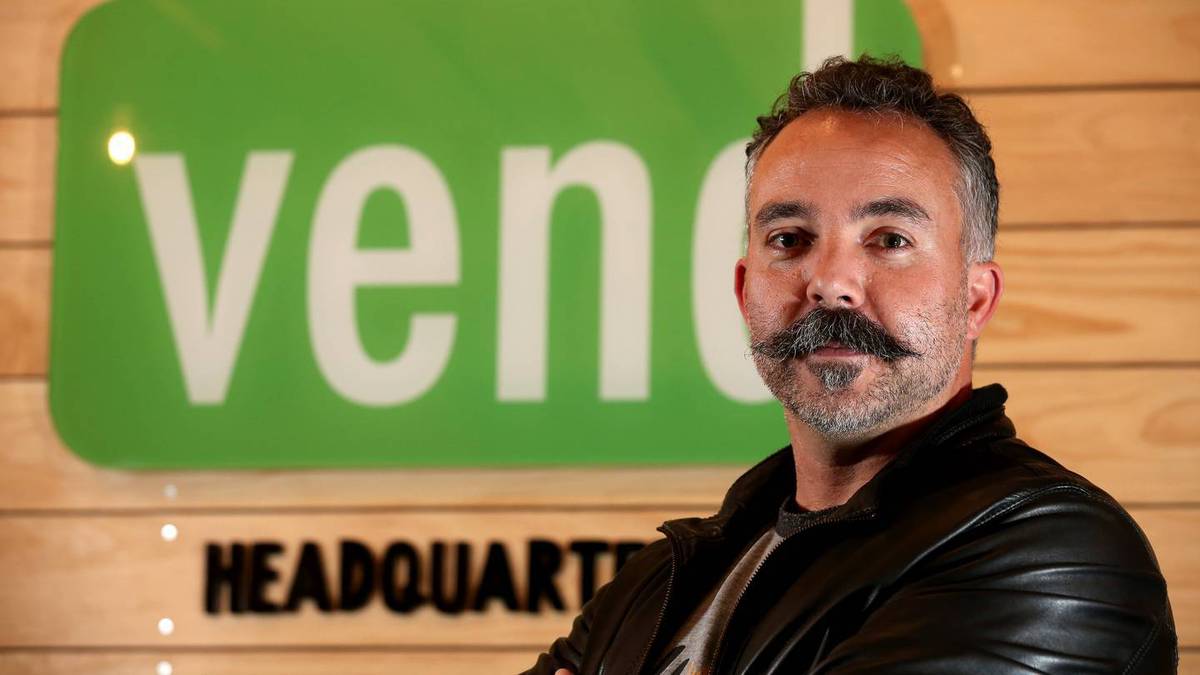Backers of Auckland-based retail software company Vend say its US$350 million ($455m) sale to a US competitor will be good for New Zealand.
The sale has potential to reignite debate about why so many Kiwi tech companies end up in North American hands – particularly as it was announced within hours of news that Christchurch 3D modelling software outfit Seequent is being sold to Nasdaq-listed Bentley Systems for US$900m.
Read More
- Kiwi tech star Vend on hiring spree, targets $1b valuation
- ‘We bought a zoo’ – Vend founder Vaughan Fergusson’s new gig (and name)
Lance Wiggs, whose Punakaiki Fund had a 3 per cent (or around $14m) stake in Vend, told the Herald such deals help fund the next generation of startups.
“I expect we will see a lot of these funds recycled back into the local tech community, as we will certainly do at Punakaiki Fund,” Wiggs said.
And Vend founder Vaughan Fergusson added, “When we started [in 2009] there was essentially just Xero, and they weren’t that big. Now there’s this whole vibrant ecosystem of hundreds of [NZ tech] companies.”
He would look to invest in startups, but also continue his mentorship role. “I’m terrible at saying ‘no’ to people who ask for advice – but please don’t print that,” Fergusson said.
NZX misses out in offshore drift
Capital-raising consultant and Rocket Lab alumnus Ralph Shale congratulated Vend and Seequent, but also saw some disturbing undercurrents.
“The US listing of RocketLab, the sale of Vend and Seequent offshore shines a spotlight on the NZ capital markets and the lack of depth,” Shale said.
“I suspect that remaining in NZ was not really a viable option for any of these businesses.
“We should not blame those involved for getting returns on their investment and time,” he said, “but as a nation, we need to think about how more of the value created can accrue to New Zealand.”
The local exchange also seems to have missed out on a potential $722m listing of Vocus NZ – the local operation of Vocus Group, and owner of Orcon and Slingshot – with a pending trade sale to Macquarie Group heading off IPO plans.
But Shale added, “recent criticism of the NZX by some in the funds management sector overlook the fact it is access to capital that our entrepreneurs required, not a trading platform.
“Hopefully, with more success stories like these, more funds will look at earlier-stage opportunities, although they need to also think about how to tap into that market.”
Who got a payday
Vend makes software that allows cash registers to be replaced by iPads or other internet-connected gadgets
It was founded 12 years ago by Fergusson, who had just sold his first startup – an online travel booking platform – to Trade Me.
The company was valued at US$100m at the time of its last major capital raise around 2016, indicating the sale is a considerable payday for shareholders.
Ahead of the deal, the largest shareholder was local venture capital fund Movac, with a 9 per cent stake.
Fergusson, his ex-wife Mel Rowsell and early backer Sam Morgan were the next largest shareholders, each with an 8 per cent share. The sale represents Morgan’s third major score after the Trade Me sale and his huge gains via his early Xero stake.
Milford Asset Management had a 5 per cent stake via its Active Growth Fund.
And the sale will also represent major gains for two smaller earlier investors: Peter Thiel’s Valar Ventures and Wiggs’ Punakaiki Fund.
Vend claims that more than 20,000 retailers worldwide use its cloud-based point-of-sale software. It generated revenue of approximately US$34m in the 12 months to December 31, 2020, Lightspeed said in a statement.
The deal will close in April, subject to approvals.
The Covid effect
The sale came close to the anniversary of the first lockdown, and a pandemic period that saw the departure of two of Vend’s highest-profile staff – CEO Alex Fala, who would later take the reins at Syft after the controversial departure of Doug Hastie, and chief engineering officer Ben Gracewood, who went to Westpac.
But Ana Wight, who took the reins after Fala’s departure, said although 2020 was something of a roller coaster, the pandemic ultimately saw Vend become cashflow-positive for the first time.
While many of Vend’s bricks-and-mortar retailers were hit by lockdowns, the survivors were “forced to digitise”, Wight said. The surge in click-and-collect and online sales meant in-store sales systems had to modernised – through software like Vend – so they could talk to e-commerce systems.
The new owner
The Canadian-founded, NYSE-listed Lightspeed is in the same market as Vend, selling cloud-based point-of-sale software, but is many times larger with a market capitalisation of just under US$10b. Ahead of the deal, it had around 135,000 customers worldwide.
Lightspeed’s Asia-Pacific VP Nick Cloete told the Herald that his company’s purchase of Vend would allow it to “dominate” the Australasian market, where the Kiwi company was particularly strong, but also help with global expansion.
Wight said Vend had about 280 staff worldwide, including around 150 in its home base of Auckland.
Cloete said Lightspeed was committed to the local office, and to expanding R&D, which could potentially see more staff employed in NZ.
Fergusson stepped back from day-to-day operations in 2016 to devote most of his time to running the Pam Fergusson Charitable Trust, named after his paraplegic mother, who raised him and his two brothers solo.
The foundation’s philanthropic work includes a new outdoor education facility in Raglan and initiatives to improve IT education opportunities and diversity in the tech industry.
But in the short term he would be mucking back in, “rolling up my sleeves to help with the integration”.
Source: Read Full Article





